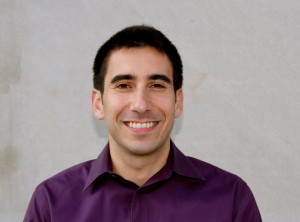JTS Leads in Leadership Education
 Rabbi Jason Miller, a 2004 graduate of JTS wrote here that while he had wonderful teachers and courses at JTS, he didn’t receive adequate training in entrepreneurial leadership, finding such opportunities only after ordination. I won’t disagree with his memory of his experience, though there were some such leadership training components available here even back then. What I can say is that this depiction does not capture the current situation at JTS. Leadership education is found in many parts of our curriculum, with a new course on rabbinic leadership and new training programs and opportunities for our students to exercise adaptive leadership during their rabbinical education. One exciting recent development is our Myers Rabbinic Fellowship, which teaches students to design grant proposals, and then offers them up to $15,000 in seed money and sustained mentoring to implement their innovative idea. Our students are emerging with new ideas, and in some cases with new organizations that they founded while still students at JTS.
Rabbi Jason Miller, a 2004 graduate of JTS wrote here that while he had wonderful teachers and courses at JTS, he didn’t receive adequate training in entrepreneurial leadership, finding such opportunities only after ordination. I won’t disagree with his memory of his experience, though there were some such leadership training components available here even back then. What I can say is that this depiction does not capture the current situation at JTS. Leadership education is found in many parts of our curriculum, with a new course on rabbinic leadership and new training programs and opportunities for our students to exercise adaptive leadership during their rabbinical education. One exciting recent development is our Myers Rabbinic Fellowship, which teaches students to design grant proposals, and then offers them up to $15,000 in seed money and sustained mentoring to implement their innovative idea. Our students are emerging with new ideas, and in some cases with new organizations that they founded while still students at JTS.
My second point is a different type of response. I am all for innovation, and have found that continuous assessment and “pivoting” to adapt to new realities has been an important part of my rabbinical career, both in the pulpit and in the Seminary. Still, it seems that our culture has become infatuated to a fault with the virtues of change. Stability is an essential component of any system—whether of a family, a religious community, or a country. One thing which many people seek the most in a rabbi is reliability—a person who will convey a consistent message of compassion, integrity, and wisdom. Reliability doesn’t win grants and headlines. There are no awards for the rabbi who “merely” leads a congregation for decades of meaningful prayers, study programs and life cycle events. But that is where the real life of a Jew is lived. Innovative programs are important to expand the circle of involvement, to adapt to changing circumstances, and to keep things exciting. Yet our culture often forgets to pay attention to the structures that sustain identity in a rapidly changing time. Judaism, like God, needs to be “chai v’kayam,” both dynamic and durable.
Rabbi Danny Nevins is Dean, JTS Division of Religious Leadership, and
Pearl Resnick Dean of The Rabbinical School


 Daniel Chiat,
Daniel Chiat, 